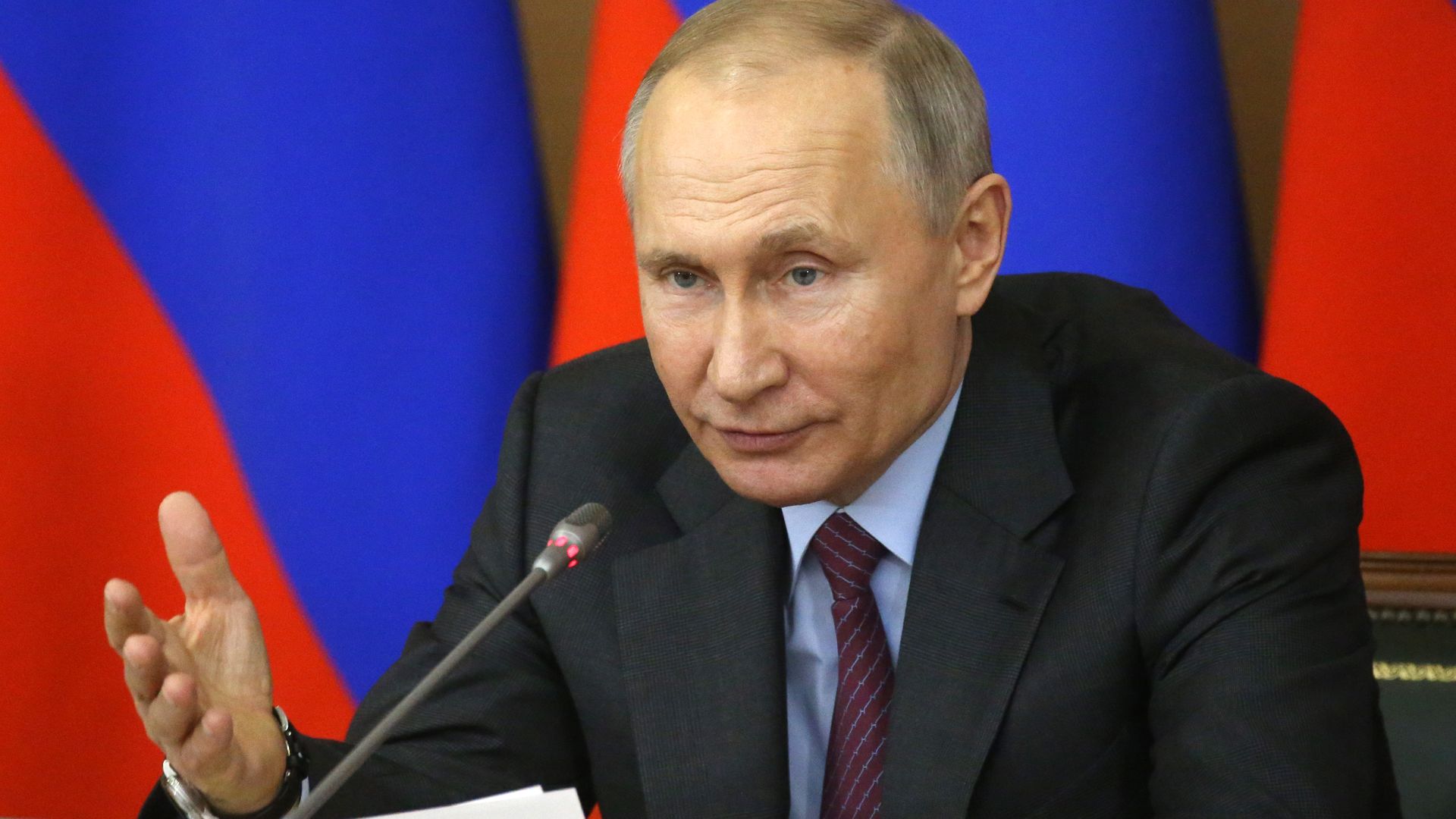At Davos, Putin points to U.S. to warn Big Tech is driving social divisions
Add Axios as your preferred source to
see more of our stories on Google.

Photo: Mikhail Svetlov/Getty Images
Russian President Vladimir Putin told the virtual “Davos Agenda” conference on Wednesday that recent events in the U.S. had underscored the danger of “public discontent” combined with “modern technology.”
The big picture: Putin, a late addition to the speakers' list, is facing protests at home over the arrest of opposition figure Alexey Navalny. Several experts and activists criticized the World Economic Forum for inviting him, with chess champion and Kremlin critic Garry Kasparov tweeting that Putin’s appearance showed he was “desperate to reassure his cronies he's still acceptable in the West despite his brutal crackdown.”
What he’s saying: Putin said growing inequality and “systemic socio-economic problems” were “splitting the society,” adding: “This pressure shows through even in those countries which seem to possess well-established civic and democratic institutions.”
- He said Big Tech firms had established monopolies, and questioned whether their services were serving “the public interest” or further contributing to the divide.
- “We have seen all of this quite recently in the United States, and everybody understands quite well what I’m talking about," he said.
Between the lines: This could also be read as a self-serving argument from Putin, who has sharply curtailed freedoms online and was only yesterday forced to respond to a viral YouTube video in which Navalny claimed he owned a “billion dollar palace."
The other side: Putin’s style diverged sharply from Chinese President Xi Jinping, who addressed the conference on Monday.
- Xi appeared polished and camera-ready, breaking his speech into four themes and speaking in sweeping terms about international cooperation.
- Putin was late to start, sat in a slouched position and peppered his speech with economic statistics in a tone that alternated between combativeness and disinterest.
Worth noting: Putin also contended that countries facing internal divisions were seizing on “external enemies,” particularly “countries that do not agree to become docile, easy to control satellites.”
- He argued that the increasing the use of tools like sanctions would only increase the risk of future “military force.”
Go deeper: Biden's Russia challenge
